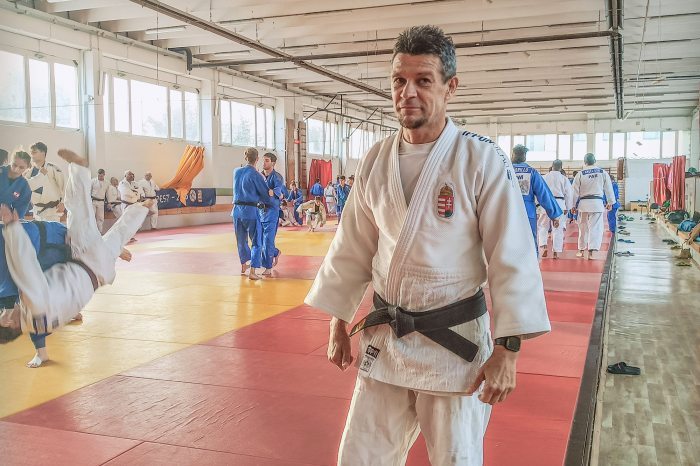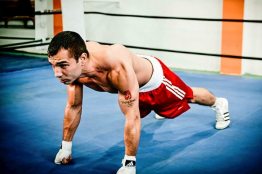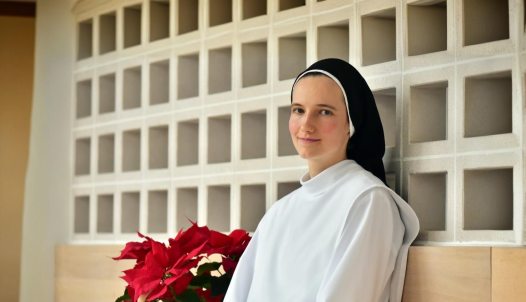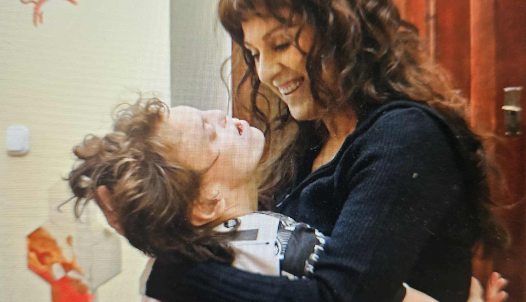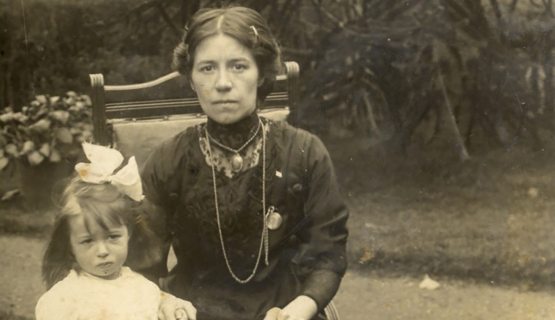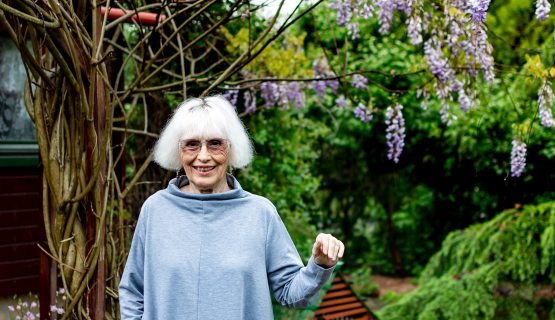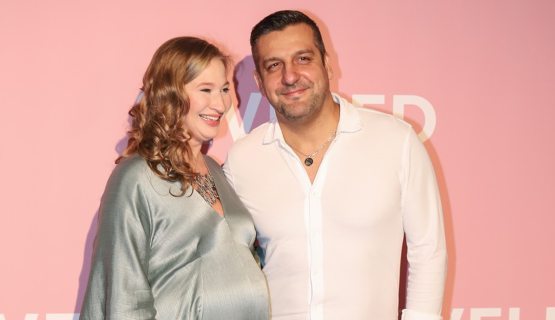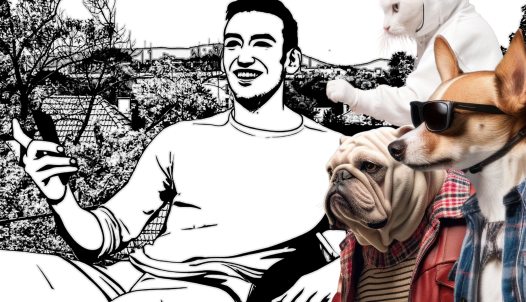"I see from my memories" – as a teenager, for Norbert Biró, Paralympic bronze medallist, everything got blurred
He started out as a promising junior national judo player, but at the age of 16 his eyesight began to deteriorate rapidly. As a result of the disease, diagnosed in 1991, his left eye went completely blind in a short time and he can see only ten percent with his right eye. Yet Norbert Biró lives a more than full life: in addition to having obtained diplomas and speaking foreign languages, he is a Paralympic bronze medallist and has been coaching the able-bodied national junior judo team for almost a decade and a half. He also helps his fellow blind athletes, while his private life is also successful: he became a father. As we sit down to chat before his training sessions, the young athletes who come to his training session all shake his hand with enormous respect.
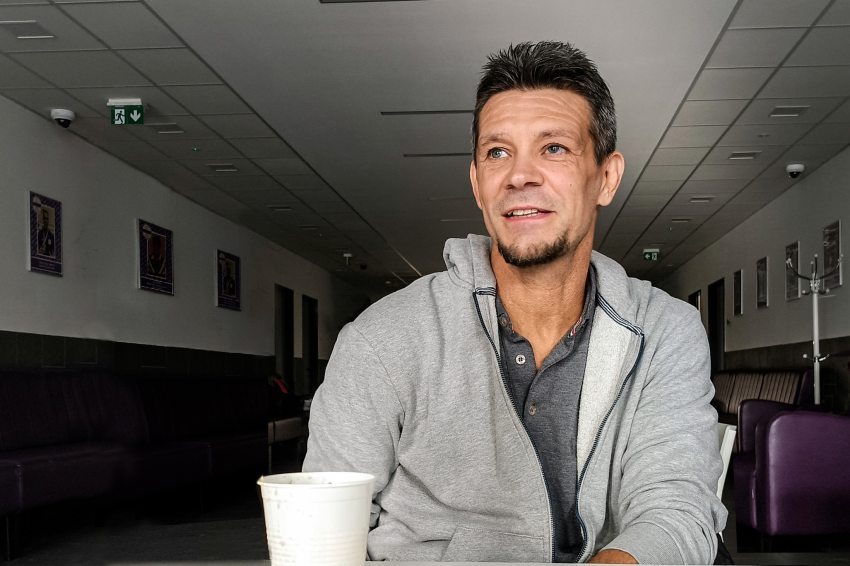
What did you want to be as a child?
At the age of six or seven, an architect. I even designed and drew specific house plans at home with a ruler. Then, in fourth or fifth grade, I had the idea of becoming a hairdresser! My mum reassured me that she would support me in anything I wanted to do, as long as I was happy when I decided to become a coach instead.
You thought about it so early?
When I was twelve, I decided that this was what I wanted to do. I was already playing judo and we didn't have a club coach, so I joined the younger ones as a coach and accompanied them to competitions. But I had always been playing sports from the age of six, – water polo, gymnastics, wrestling, judo – and, like all sporty kids, I wanted to be an Olympic champion. That plan went off the rails...
How did you find out that something was wrong?
As a judo player, I was already at the top of the sport, and a member of the junior national team when my eyesight started to deteriorate rapidly.
At 16, I was sitting at school and I couldn't see the board... At first, I joked about it, saying that everyone was writing and I had nothing to do because I couldn't see, but then we went from one doctor to the other to find out what was going on. First, I was diagnosed with a type of corneal lesion that cannot be corrected with glasses.
What is the name of the disease?
Keratoconus. The essence is that the cornea is thicker or thinner, more or less mountainous or valley-like, and you can't do anything about these "topographical conditions". I went to a doctor who thought that there was a genetic predisposition behind the development of the disease, but he examined every available family member and found no evidence of it. In fact, it’s never really been found out what the cause was.
Are both your eyes affected in the same way?
No, they were different. I first heard the name of the disease around 1991, when I was 17, and within a year or two I had laser eye surgery on my left eye, with which I could only see four or five percent at that time. The right one was still functioning at 30 percent. For a few months after the operation, the left one came up to that level, too but then it suddenly started to fall back. Then I found out that there was another problem...
What exactly?
In the meantime, a glaucoma had developed, and there was really nothing to be done. I can't see with my left eye today, the right one has been at six to eight percent – for decades now. There is no medical explanation for why it has remained so unchanged, because the disease is supposed to progress gradually, with four stages, the fourth being blindness.
Can you help me imagine how much you can see with your right eye?
Well, at an eye test, you have to sit down in a chair and read the numbers on a board, right? If you can read the largest number on it, that means you can see ten percent, but I can't even see that, maybe only from close up.
For me, there is no such thing as sharp, everything is blurred. I can't see the faces, only the shape of the head.
How did you learn to live with that? You seem very positive to me now, but I guess it wasn't always like that.
I think people around me would agree that it was relatively easy for me to cope. I'm not going to lie, there were minor lows, but not prolonged traumatic periods. Maybe because it was a process, it didn't happen overnight. The body gets used to the new condition. Now that you ask, I remember that in the mid-nineties I took a team of children to a competition and a girl sitting opposite me asked me why I read so strangely. We started talking and she remarked on how naturally I spoke about it. Of course, because that's my natural condition.
As you were coming through the parking lot towards the building and we met, I wouldn't have guessed from the way you moved that you were visually impaired. You didn't look unsteady at all, you didn't have a white cane...
In the sport of the visually impaired, they say, our residual vision is measurable. But how we use that residual is immeasurable. It's very individual, how you experience it. I think I can see from memory. With my brain, because I can hardly see with my eyes. When I went to the doctor for the disability check-up, the doctor asked me who I came with. I said, no one, I came alone. Where's the white cane? I don't have one. But there’s no way you can get around with your kind of eyesight! I said well, I don’t know how I do it, but I manage. I had a book by Attila József in my hand, and he asked me what it was for. I said, I had to wait an hour, so I spent it usefully. But can I read? I said, well they’d taught me in first grade at the elementary school and, amazingly, I haven't forgotten it ever since. He says, stop joking man, there's no such thing. I say, there must be because I read.
Are your other senses and abilities more alert?
I use my memory more effectively.
In training, I can identify everyone from a distance by their body type, hair colour, belt colour, but I have to keep all this information in mind.
What happened to competing after the diagnosis?
I stopped for a year and a half or maybe for two years, and as the coaching job became uncertain, too, I went to study physical education and geography at ELTE and got my diploma. History would have been a better choice besides physical education, and I was also good in Russian and English, but I couldn't do them for different reasons. During my university years, a doctor suggested that in my condition I should give up teaching altogether, but one of my teachers at a watersport camp encouraged me by saying: "man, you're not giving up, are you?" For those words, I will always be grateful. After graduation, I taught for four years in a village near my home until I learned that I could play judo as a visually impaired person and even participate in the Paralympics. I was at a coaching course in Rome when I found out that there would soon be a qualifying European Championships to qualify for Sydney.
I entered with Gábor Vincze, who is also blind, we started preparing, and we both won medals – I became the European champion – so we both qualified for the Olympic Games. It is true that I lost my job because they did not know about my illness, which I could no longer hide as a Paralympian. I admit that I avoided the medical check-ups until then, and they refused to employ a PE teacher who could barely see.
Meanwhile, you were already teaching at the School for the Blind, and then you focused on sports again...
And at the same time I was also training intact competitors, having graduated from the Hungarian University of Sports Science earlier.
At the School for the Blind, I taught the children to fall in a special training course, because many wouldn't even imagine how useful this kind of knowledge is when you are blind for preventing accidents...
By the way, when I teach judo to blind kids, I treat them like sighted children, except that when teaching technique, I have to hold their hands and feet and show them the movement. It's not easy, because judo is a difficult sport even for the sighted, and there is an opponent who usually wants to push us out... But when there were 15-20 blind children in the room, I didn't lead any of them to the other, they shouted and found each other by sound.
How did you become a Paralympic bronze medallist?
From the moment I knew there was a way for me to enter, my dream was to win a medal in the Paralympic Games since I couldn't do it at the Olympics. We trained as hard as the others, went through the same training camps. We did the combat training together with the able-bodied sportsmen, but we did the conditioning training with Gabi Vincze. I could not win a medal in Sydney, so I wanted to stop, but the national captain convinced me that the four years, which at the time seemed like forever – 1,400 days! – would pass quickly. Then it really did go by fast until Athens, where my dream came true in 2004!
Even though I was after an injury, it all came together: the bronze medal was a complete success.
Coaching has taken over the main role in your life for quite some time now. Since 2011, you have also been working as a coach for the Hungarian junior national team – and I want to stress that we are talking about the intact team.
Coaching is also a dream come true, even though I left the country in 2008 for a year and a half, moving to Ireland. I wanted to try myself in a different environment, where I became a fitness instructor. Besides improving my English, this detour also built my personality. I also started to appreciate characteristics that I previously hadn't, and when I came home I had the confidence to apply for the coaching the junior national team. Before that, I never thought I would be chosen, but I was. Some people doubted me, but time has proved me right: I've been doing it for thirteen years now. I am responsible for the men, but we also work with the women.
Since 2012, you have also been in charge of the visually impaired division as national captain...
The intensity of this varies because we haven't had a Paralympic judo competitor since Rio 2016, but we could have one again in Paris. I also chaired the Judo Committee of the International Federation of Sports for the Visually Impaired for eight years, and after Tokyo, another Hungarian took over from me. Since then I have been responsible for education on the committee. This is enough, alongside my other activities, so my family could see me sometime, with whom I live in Cegléd. Because I also like being at home.
How long have you been a father?
My partner and I have been together since 2016, and this is also related to the sport, as Anita's two older children, now in university, also played judo. Our little boy Benedek has just turned six, and he considers the older ones to be his real brothers, they have such a good relationship. I didn't really want him to take up my sport, but about two years ago he asked me when he could start... I couldn't say he couldn't, so he started, but he also swims. We had him tested to see if he had inherited my illness, but luckily he was fine.
As you look back on your journey, how do you feel: how much support and help have you received from others in relation to your illness, and how many obstacles have you encountered?
I am very grateful to everyone who encouraged me and supported me! And if someone wanted to put obstacles in my way, that didn't bother me, I wouldn’t let them.
I think that the majority of people don't necessarily say or think something out of malice, but rather out of lack of information. They don't know what to think, which can lead to them saying or doing something offensive at first sight. But I know what I am capable of. I am unlikely to drive a spaceship or a plane, that is something that is not in my life. Well, driving a car, too, but other than that, I'll do anything. From my son Benedek's point of view, we are a family where it's always mum who drives because dad can't see properly. For him and us, that's how life is.
